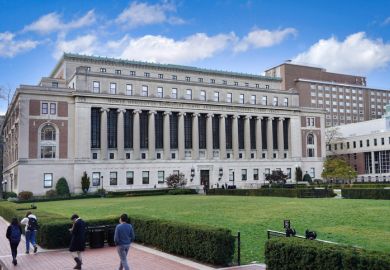The UK’s future scientific competitiveness is being hampered by the government’s lack of a long-term strategic investment plan for infrastructure, the Lords Science and Technology Committee has warned.
The committee’s report on Scientific Infrastructure, published on November 21, commends the research councils’ recent efforts to map future infrastructure needs.
The resulting document, Investing for Growth, was described by universities and science minister David Willetts in one of the inquiry’s evidence sessions as “pretty much a long-term plan”. But the peers say this only amounts to a “wish list” rather than “a prioritised, costed, long-term strategy”.
It says the director-general for knowledge and innovation at the Department for Business, Innovation and Skills, Sir John O’Reilly, should be charged with producing a 10 to 15-year investment strategy, aided by a “time-limited ad hoc advisory group with independent expertise”.
The plan should set “clear priorities based on the budget available, which are reviewed and updated at clearly defined periods so that they are responsive and flexible”.
The peers say this is particularly essential given chancellor George Osborne’s commitment, in June’s spending review, of £1.1 billion a year to science capital from 2015-16 until 2020. They also are critical of the “series of ad hoc announcements” through which extra science infrastructure spending has been announced in successive recent budgets and pre-budget reports.
Witnesses in one evidence sessions complained that this had required institutions to come up with new projects very quickly, compromising their effectiveness.
The peers say Sir John should also examine how operational costs for the facilities could be tied to capital investment “in one sustainable package”. It says there is currently a “damaging disconnect” between the two, meaning that the operational costs of new facilities were often not budgeted for.
Referring to this as the “batteries not included syndrome”, committee chair Lord Krebs, principal of Jesus College, Oxford, said: “This lack of provision for operational costs has seen facilities not being used to a maximum capacity, with severe research consequences.”
Last week Sir John said he was working with high-level bodies such as the royal academies, the Russell Group and the CBI to try to marshal a “top-level”, evidence-based agreement on “what good looks like” in science spending, based on “the sort of economy and society the UK needs and wishes to have”.
The committee says Sir John’s strategic investment plan should also be informed by an examination of the costs and benefits of hosting international infrastructure in the UK, and calls on him to “establish procedures and processes to ensure that that the UK can be engaged, proactive and well-coordinated, with a clear external face, within the European Union and internationally”.
In one evidence session, Andrew Harrison, director of France-based international neutron source the Institut Laue-Langevin, told the committee that the UK had come to be seen as “standoffish”, only joining international projects only once they were demonstrably successful.
Register to continue
Why register?
- Registration is free and only takes a moment
- Once registered, you can read 3 articles a month
- Sign up for our newsletter
Subscribe
Or subscribe for unlimited access to:
- Unlimited access to news, views, insights & reviews
- Digital editions
- Digital access to THE’s university and college rankings analysis
Already registered or a current subscriber? Login




